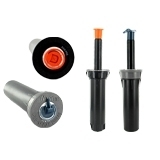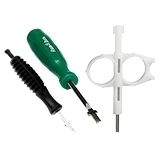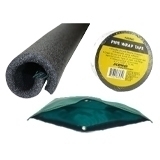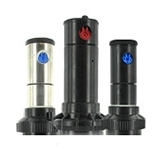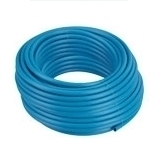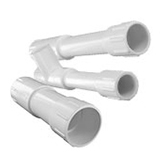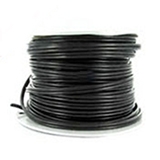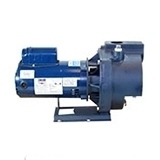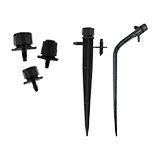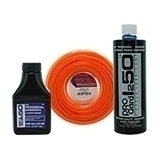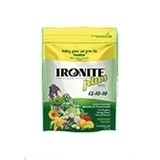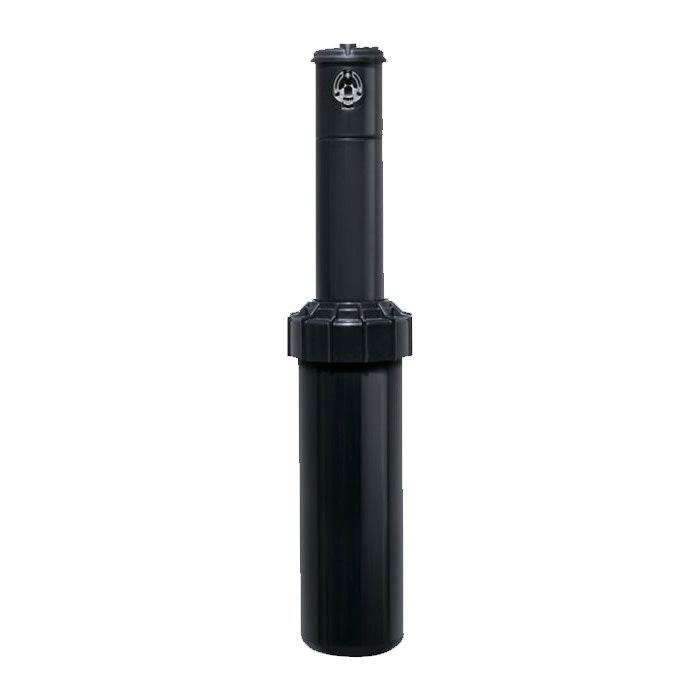Introducing The Raspberry Crazy Ant
The following dialogue is an interview that took place between myself and the Public Relations director for the Raspberry Crazy Ants. We discuss their name, housing preferences, attraction to electronics and pesticides.
Introduction:
Me: For the past month or so the news has been running stories about crazy ants; exploiting their dangerous and destructive nature. They are reportedly nomadic, choosing to not live in anthills the way their cousins do. Furthermore it is said that they are resistant to traditional methods of eradication. These ants are mobile and travel in large armies with several queen ants per colony. It was difficult to get an interview with the species head ant and leader. However, after repeated attempts to contact him, we finally were able to schedule an interview with the species PR manager. The manager is also the marketing director and 15th generation grandson of the species pioneer ancestors who came to America for the first time over a decade ago.
Please help me to welcome R.C. Antonio to the stage
- (Audience applause)
- (Guest Enters from left of stage, walking in a seemingly random and non-linear path to desk)
Me:
We are very excited to have a real live crazy ant in studio with us. Thanks so much for coming! Did you have a safe trip getting here? For weeks we have been hearing about the impending invasion of your species on the southern parts of the USA. What have you found to be the biggest obstacle to this year’s invasion.
R.C. :
Thanks for having me! My trip here was very good, thanks for asking!
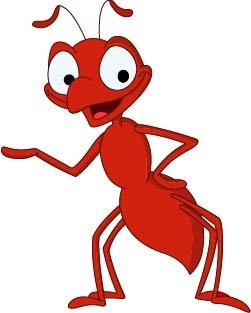
Me:
For weeks we have been hearing about the impending invasion of your species on the southern parts of the USA. What have you found to be the biggest obstacle to this year’s invasion.
R.C. :
So far everything has been right on schedule. We are finding it especially easy to invade because of the high levels of apathy. It is used by people with respect to protecting their property. Not to mention the incredibly high number of electronics that are in homes. It makes it a perfect place for is to get inside and stay! So we are doing well, and I am happy to be here with you here today.
Me:
The media is referring to you as the Raspberry Crazy Ant, do you take offense to this name?
R.C. :
Yes, we absolutely do not endorse the use of that moniker. Our real name is Nylanderia Fulva. But that is a mouth full and hard to remember. So, I prefer to go by Nyles instead. Even though it does make me sound like a character from Downton Abby’s better than being referred to as an insane rubus fruit.
Me:
Where did the name raspberry crazy ant come from?
R.C. :
Most people think that the Raspberry-Crazy name is the product of a love for the sweet berry fruit. However, we actually have little or no interests in the sweet berry-fruit at all, but we do have the same physiological needs that any other ant needs. The Raspberry portion of our name comes one of our arch-nemesis. For years we were able to move about relatively unnoticed staying basically off-the-radar. Till one day in 2002 we were exploring as we typically do, and a human took a particular interest in us.
That man was Tom Raspberry, and ever since that day we have been irreversibly marked in the media as being Raspberry Crazy Ants.
Me:
Where does the term crazy come from? Because, as I sit here with you now, you seem to be quite cordial and well mannered!
R.C. :
The media has long referred to our species and others like us as crazy. This is because we choose to not to follow each other in a line wherever we go. Instead we feel we can cover more ground and get more done if we move independently of one another. We refuse to conform to the ant stereotypes and choose to be progressive and forward thinking we get called crazy. It’s a travesty and nothing more than run-of-the-mill lampoonery! We won’t stand for it.
Me:
Why do you choose to not stay in anthills or underground colonies?
R.C. :
We are free spirited and don’t want to be tied down to a single solitary area. Additionally, because we are so small and mobile it makes more sense for us to stay on the move. We utilize the shelters we can find along the way. If a place is warm and can protect us from the elements, we can use it as a shelter.
As you can probably imagine, our travels throughout the southern United States we have seen a great deal of different electronics and gadgets where we have been able to stay and make home. Our favorite place to stay is probably flat panel TV’s.
Me: Why do you prefer flat panel televisions?
R.C. :
For a couple of reasons actually! The first reason is, like I mentioned, is warmth in addition to providing an effective element of cover from the elements TV’s are perfectly warm and spacious too! It seems like as time goes by, the TV’s we are finding to stay in keep getting bigger and bigger! Additionally, it seems like the TV is the one electronic in the house that stays on for the longest.
The second reason is that we ants love the feeling created by electricity flowing through wires and circuit boards. The almost inaudible hum of electricity resonating though wires and circuit boards is something we just cannot get enough of! We love to find a TV that we can all fit inside of. We just settle into all the nooks and crannies inside of the case and relax as we enjoy that wonderful electricity warmth and feeling!
Me:
How can humans know if their electronics have been invaded by an army of heat seeking ants? Is there any tell-tale signs to watch for?
R.C. :
There is no way to know for sure that you have been invaded, till it’s too late. In other words, once you see us and you can see that there are floods of us, than we have likely already infiltrated the warm places in your home and property.
However, one surefire way to know (albeit too late) is by watching for equipment malfunction. When my fellow ants get inside electronics and they begin to make themselves fat and happy by chewing on wires. Sadly, their bodies can act as a conductor and once enough have died and are touching, the current can be carried through their bodies causing a short circuit. Short circuits often result in erratic behavior of electronics but most frequently death of that device occurs.
Me:
It is reported that you have taught yourselves to be impervious to the standard arsenal of repellents and insecticides.
R.C. :
When we are very young ants we go to ninja school. In school we learn to not succumb to the traditional methods of killing ants. We build a tolerance to the most commonly used pesticides so that when they are used on us we will not be harmed. Additionally, we learn to art of evasive maneuvering which lets us move in erratic and unpredictable directions making it almost impossible to catch us or crush us.
Me:
It is rumored (and I apologize for being so cryptic) but is it true that when one of your fellow ants is killed that it releases a scent or pheromone that attracts other ants to that location like a sort of homing beacon?
R.C. :
No apologies are necessary; this is actually a very good question. See, we love to chew through wires. Especially wires that have power running through them. There is just something about that soft flexible plastic they coat those wires with that is just so much fun to gnaw on and chew through. Unfortunately, as fun and satisfying as this habit is, it is also very dangerous for us. We are taught in our youth (at young ninja ant school) how to hunt and track. This is an important skill for us to be able to track down our fellow ants when they are in trouble and help them. Unfortunately when an ant chews a little too far into the center part of a wire that is alive, they will be electrocuted instantly. The result is a great many ants becoming attracted to that location.
Me:
Is there anything that you are resistant to? Is there anything that can kill you which you have not been able to build up a tolerance to?
R.C. :
Actually, yes there is. And most people would say I am crazy to reveal this publicly, but I don’t care because after all, I am a crazy ant right!?
To answer your question Cedarwood. Cedar oil is the worst!! We ants hate cedar oil products. Specifically products like Sevin Pest Control and Tickshield from CedarCide. That stuff is like Kryptonite to us, if it gets on our bodies we die in less than a minute because of the hydrated silica in it. Even if we do manage to avoid contact with it physically, the cedar oil in it messes with our pheromone systems and is just downright unpleasant to be around. We’d rather find a new home than deal with ALL the problems cedar oil causes us.
Me:
Why would you reveal this to the world so openly? Are you not afraid that people will use it to destroy your colony?
R.C. :
To be honest I am not afraid. Humans are so predetermined and set in their ways! They believe that to kill insects they have to use the most powerful insecticides that they can find at their local hardware store. They will never believe that something that is 100% natural, pet & child safe, and organic can be so lethal So the odds of them actually getting it and using it are by far in our favor!
Me:
Where did your type of ant come from and how did you get here to the United States.
R.C. :
I am a 15th generation crazy ant, which means that my Great- great-great- great-great- great-great- great-great- great-great- great-great- great-great-Grandfather was the first of the Crazy Ants to come to America. The story of his travels has been a tradition in our family for years. Back around the year 2000 he and his family and a few other families of ants boarded a ship called the Royal Caribbean Rhapsody (I guess he must have been royalty?) So he and his queen wife, princess & prince children boarded the ship and were at sea 3 days before finally arriving at the port of Houston Texas. This was going to be the new home for the royal ant family.
Once they were on the new ground in North America they began to settle in and get comfortable. They quickly multiplied and reproduced. Before long the royal ant family had gone from just 4 to 4-million! They spread out to find new lands to conquer and found that Texas was a great place for them to live and prosper.
14 years later, here I am I don’t consider myself to be a royal or anything like that, but I am proud of the progress our people have made and hope to take over the entire state of Texas, Florida and New Orleans in the next 15 years.
Me:
That is fascinating! How neat to discover that you are the descendant of royalty! Is there anything else you would like people to know?
R.C. :
Yes, we want to ask people to keep leaving their electronics on and their doors and windows open thereby allowing us to come in and settle into their homes and seek shelter and comfort in those warm electronics! Additionally, I just wanted to let you know that if you would rather have us leave your home alone altogether, they only need to spray around their property with Cedar Oil products from CedarCide.
R.C.:
The best way to cover the entire grounds and ensure that you are fully covered is to use a system like the one from Mosquito Magician that injects the cedar oil product into the sprinklers. Not only is it inexpensive, but also the most efficient and effective way to cover a larger area. When we come upon a yard that’s been treated this way we will just move on to the next place and I won’t have to deal with the deaths of many more of my friends and cousins.
Me:
Thank you, R.C. Antonio, for coming to our show and sharing some information about yourself with us. We wish you the best of luck in your endeavors and hope that we never cross paths with you or your family & friends.
R.C. : No problem at all, thanks for having me.
- (Audience applause)
- (End of Interview)
- (R.C. Antonio stands up from seat and shakes hands with audience)



